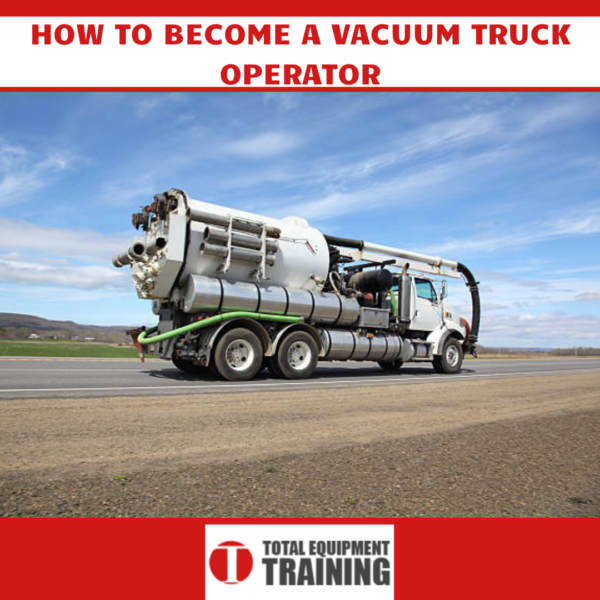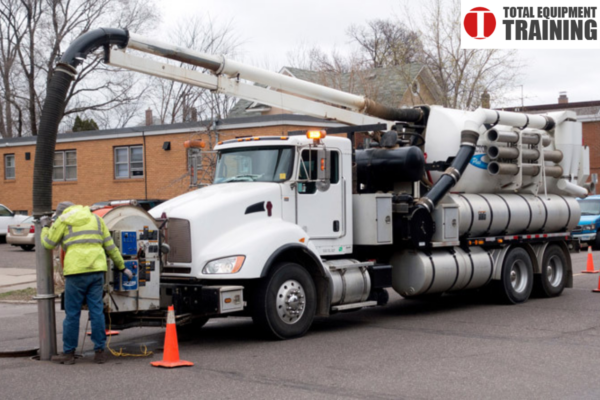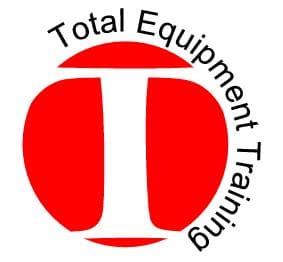
Many industries sometimes produce non-recyclable (and potentially dangerous) waste fluids, whose handling, transport and disposal should be done with care. Safe transportation of waste materials is the driving force that has seen the spread and improvement of the use of vacuum trucks, or more colloquially, ‘vac trucks’.
Schedule On Site Vac Truck Training
What Is a Vacuum Truck?
A vacuum truck is a vehicle equipped with a tank and attached pumping apparatus. Some are capable of both sucking up and pumping out liquids, but most operate exclusively as vacuuming utilities. Vacuum trucks find their use in numerous industries, (mining, transport, construction) but most popularly in waste management (both human and industrial) where they suck up the slurries for transport to a predetermined disposal site.
Whatever your experience level – whether rookie or veteran – Total Equipment Training offers vacuum truck operator training to help you stay OSHA compliant.
How Do You Become a Vacuum Truck Operator?
Relative to other heavy equipment machinery requirements, the prerequisites to become a vac truck operator are not as stringent.
- The candidate must be at least 18 years old
- They must possess a valid CDL – Commercial Driver’s License if they will be driving the truck
Some factors that would improve one’s chances of becoming a vac truck operator include:
- Prior experience (in occupation) driving heavy commercial vehicles; 2 to 5 years as preference. With the help of Total Equipment Training, many employers provide on-site training for heavy equipment operators.
- Possess a GED (General Education Diploma) or high school diploma
- Basic vehicle repair skills and knowledge of pump systems will be a major assets.
Stay a step ahead of the competition by complete vac truck training from a recognized and reputable organization.
Do You Need a CDL to Drive a Vacuum Truck?
It is essential for a vacuum truck operator to have a Commercial Driver’s License (CDL) certified by the U.S. Department of Transportation, the nation’s governing evaluation and certification body in regard to road safety. Attaining the license itself requires that:
- Pass a hearing and visual test
- Blood pressure test
- Pass drug and alcohol tests
Need more assistance becoming Vac Truck certified? Call us today: (610) 321-2679
How Long Does It Take To Become a Vacuum Truck Operator?
If you meet the criteria above, and have satisfied an employer’s conditions, it is possible to begin vacuum truck operation right away. However, it is highly advisable to partake in vacuum truck training offered by a recognized, quality-oriented organization that meets OSHA requirements.

FAQs About Vacuum Truck Operation
During Total Equipment Training onsite vac truck training, the vacuum truck operator will have the opportunity to find solutions with an experienced trainer in the heavy equipment business. However, TET is a valuable resource for knowledge in the heavy truck industry.
Can You Drive a Truck With Air Brakes Without a CDL?
Yes, there is no requirement to have a CDL to drive a truck with air brakes. There is an exception: that the truck has a GVWR (Gross Vehicle Weight Rating) or GCWR (Gross Combined Vehicle Weight Rating) of 26,001 lb. or (approximately) 11,794 Kg. GVWR is the maximum combined wight of the vehicle, while GCWR is the combined total weight of the truck/vehicle and its trailer.
Do You Need a Tanker Endorsement to Drive a Water Truck for Hydro Excavation?
A tanker endorsement is an officially issued certification that proves a truck driver is legally allowed to transport large quantities of fluids (liquids or gases). It is attached to the driver’s CDL, presented as a letter ‘N’. To address the issue, yes; a tanker endorsement is required to drive a water truck for hydro excavation.
How Much Do Vacuum Truck Operator Jobs Pay?
Vac truck operators stand to earn an average of $795 per week. This can change based on the level of skill, location, and experience. We find that the average ranges from $413 – $1,045 per week. This may not account for any special incentives your employer provides such as benefits or paid training for heavy equipment operators.
Additional Vac Truck FAQs
Some additional frequently asked questions about vacuum truck operation include:
- What are the types of vacuum trucks?
- How do vacuum trucks work?
- What career progression opportunities exist for vacuum truck operators?
- What are vacuum trucks used for?
- What are the measures for safe vac truck operation?
Contact TET to schedule your vac operator training
Why Choose Total Equipment Training for Your Vacuum Truck Operator Training?
It is always advisable to seek out professionals in your field of interest, as they have the skills, experience, and networks that can significantly add value to your ambitions, bringing you that much closer to your goal. Total Equipment Training provides such a platform to not only vacuum truck drivers, but a wide range of other industrial and construction professionals as well.
TET offers training, certified evaluation, referrals, and even postings with employers for their trainees. Whether it is vacuum truck training for yourself or vac truck training for your employees, you can rest easy with the assurance that TET will provide the competencies and skills. Save money and time by getting trained/certified at your heavy equipment site.

